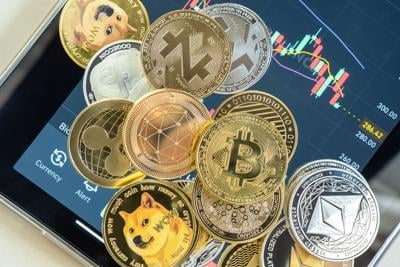Originally published in The Weekly Journal on Dec 14, 2022
Despite current crises, the technology supporting it all remains legitimate

Bangkok, Thailand – 1 July 2021: Cryptocurrency on Binance trading app, Bitcoin BTC with altcoin digital coin crypto currency, BNB, Ethereum, Dogecoin, Cardano, defi p2p decentralized fintech market
As the island grew a critical mass of Web3 related innovators and business people over the past few years, a vision appeared of Puerto Rico becoming the next Silicon Valley for technology related to the developing iteration of the internet. Part of that was a large influx of crypto-related investors and businesses who saw both the growing community and the generous tax benefits offered by the island.
Yet you need only glance at a few headlines and that vision, even on a global scale, seems to have been replaced by a far less promising one. Within the crypto market, $2 trillion of market capitalizations have been lost over the course of the year-long crypto winter. As of December 2022, both Bitcoin and Ethereum were down 65% year-over-year.
So what’s in store for Puerto Rico’s crypto and Web3 community? It starts with highlighting other uses of the technology underlying cryptocurrency markets.
“Crypto, at the moment, won’t be the on-ramp for Web3,” said Keiko Yoshino in an interview with THE WEEKLY JOURNAL. “Unfortunately, crypto has made a lot of headlines and it has done severe damage to the reputation of the technology as a whole, because a lot of people only know enough to know that crypto is tied to it.”
Despite the hellish situation for crypto investors, there are upsides to the incidents of the past year. With the initial shininess of crypto dulled, and while the bad actors are being weeded out, it’s necessary that the industry’s threshold of legitimacy rise and to focus on innovating.
“When everything’s going well, and there’s a lot of hype, there may be some inspiration. But when it’s not, we go back to the drawing board and ask ‘how do we make this better? How do we make sure that this is safe? Everyone should be looking at their own product right now,” Yoshino said of creating opportunities during hard times.
Yoshino came to Puerto Rico to join the crypto community with the goal of improving and increasing access to education relating to blockchain technology. Leaving behind Washington DC, she moved to the island in 2021 and founded the Puerto Rico Blockchain Trade Association (PRBTA) and “CryptoCurious”, a free weekly educational program to help people get to know more about crypto, NFTs, the metaverse, and Web3. “This is my first crypto winter. So I didn’t know what to expect. But I came for the crypto and stayed for the technology, right? Because I believe in it,” Yoshino said.
“For this space, the technology is there, it’s just [a matter of] finding adoption of it in ways that are beneficial to not just one individual, but to the community, to governments, to everybody,” explained Yoshino.
From solving the island’s energy crisis using micro grids on a blockchain to saving money by using decentralized storage through Filecoin, there are already numerous efforts that have the community front of mind, as was originally intended with the emergence of these technologies. “The energy was very positive seeing and drawing the nexus of where technology could be part of the solution for Puerto Rico, but also just bringing together people that were interested in the future of Puerto Rico, the true builders,” Yoshino said of the past Blockchain Week organized by the PRBTA, where a diverse group of 300 attendees discussed regulatory and public policy issues, financial inclusion, and utility NFTs.
Additionally, legislation is critical to supporting adoption of blockchain and related technologies. On Wednesday, the PRBTA will present a bill to clarify the language from a similar bill passed earlier, regarding the following issues: creating another crypto international finance entity (IFE), amending the money transmitter act through the ‘Innovation Sandbox’, codifying the SEC’s ‘how we test’ to determine whether something is a security, and amending the foreign corporations act so that an entity isn’t required to register in Puerto Rico if they don’t have an office on the island and people work remotely from home.
“We’re here to build. And slowly but surely, we’re building community and that was in a large part what we were hoping to accomplish,” Yoshino emphasized.

